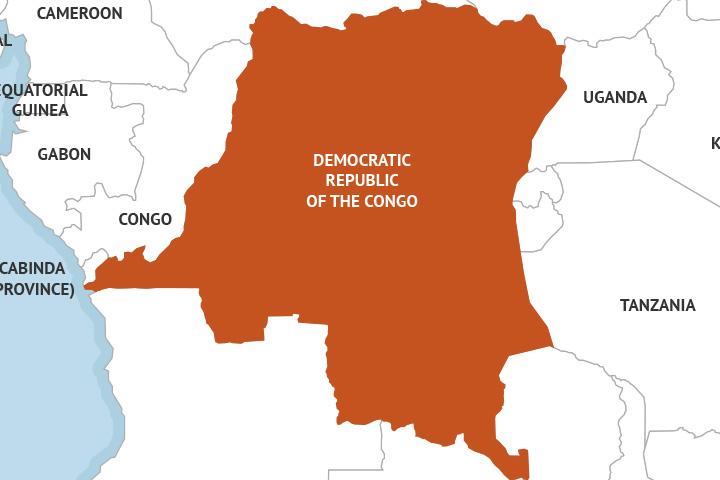Democratic Republic of the Congo
Background
The conflict in the Democratic Republic of Congo (DRC) is one of the world’s deadliest since World War II. Since 1998, some 5.4 million people are reported to have died from war-related causes. Civilians in the regions of Ituri, North and South Kivu have borne the brunt of fighting between government forces and local militias—often backed by regional powers—over control for territory and rich mineral resources. Political and ethnic tensions have resulted in years of grave international crimes including mass murder, the use of child soldiers, pillage, sexual and gender based crimes and burning houses, among others.
“(Thanks to the TFV), I am now able to do what others are doing. In life, we must not neglect ourselves and lose hope.” –Q,TFV Assistance Programme Beneficiary in DRC
Starting in 2006, the ICC prosecuted of some of those allegedly responsible for these crimes and entered guilty verdicts in 2012 (confirmed on appeal in 2014) for Mr. Lubanga (link https://www.icc-cpi.int/drc/lubanga), in 2014 for Mr Katanga (linka https://www.icc-cpi.int/drc/katanga) and in 2019 (pending on appeal) for Mr. Ntaganda (link: https://www.icc-cpi.int/drc/ntaganda).
The TFV launched in 2008 its first phase of assistance programmes for victims of crimes falling within the jurisdiction of the ICC. It has launched projects ranging from physical rehabilitation, school assistance, income-generating activities, psychological rehabilitation as well as peace building and reconciliation, allowing victim reintegration and protection in the DRC.
TFV Assistance Programmes in the DRC
The first phase (2008 -2017) of the DRC Assistance Mandate Programme Cycle ended in 2017 with a total number of 58,439 direct beneficiaries supported across Ituri, South and North Kivu.
In July 2020, the TFV launched the second phase of the DRC Assistance Mandate Programme with ten new projects in collaboration with both international and national service providers working in the DRC. The programmes expect to reach over 20,000 direct beneficiaries.
The projects range across a number of sectors, including:
- Physical rehabilitation support to mutilated victims and survivors of sexual and gender-based violence (SGBV)
- Psychological rehabilitation
- Income-generating activities
- Community peacebuilding and reconciliation for conflict resolution through non-violence
Implementing Partners
In the Ituri Province, the implementing partners include:
- Association des mamans Anti-Bwaki (AMAB)
- Cooperazione Internazionale (COOPI)
- Missionnaires d’Afrique
- Fleuve d’Eau Vive qui Coulent aux Autres (FLEVICA)
- Observatoire de Droits Humains (ODH)
The service providers in North and South Kivus include:
- Solidarité pour la Promotion Sociale (SOPROP)
- Transcultural Psychological Organization (TPO)
- World Relief (WR)
- Medecin du Monde (MDM)
- Appui aux Femmes Démunies et Enfants Marginalisés (AFEDEM)
Former TFV partners include Catholic Relief Services (CRS), Oxfam Quebec, Collectif des Associations Féminines/Beni (CAF/Beni), Bureau d’Etudes et d’Appui Technique aux Initiatives Locales– Action for Living Together (Beatil – ALT) among others.
Many other victims of war crimes and crimes against humanity in the DRC are still in need of assistance, especially with the recent resurgence of the conflict and armed groups in Ituri and North-Kivu (Eastern DRC). The TFV depends on support from States Parties, private donors and technical and financial partners of all continents to continue bringing hope to Congolese survivors. Join us in helping victims of crimes against humanity in the DRC to heal.
Updated information on programme activities in the Democratic Republic of the Congo in Q1-Q2 2022 and Q3-Q4 2022

